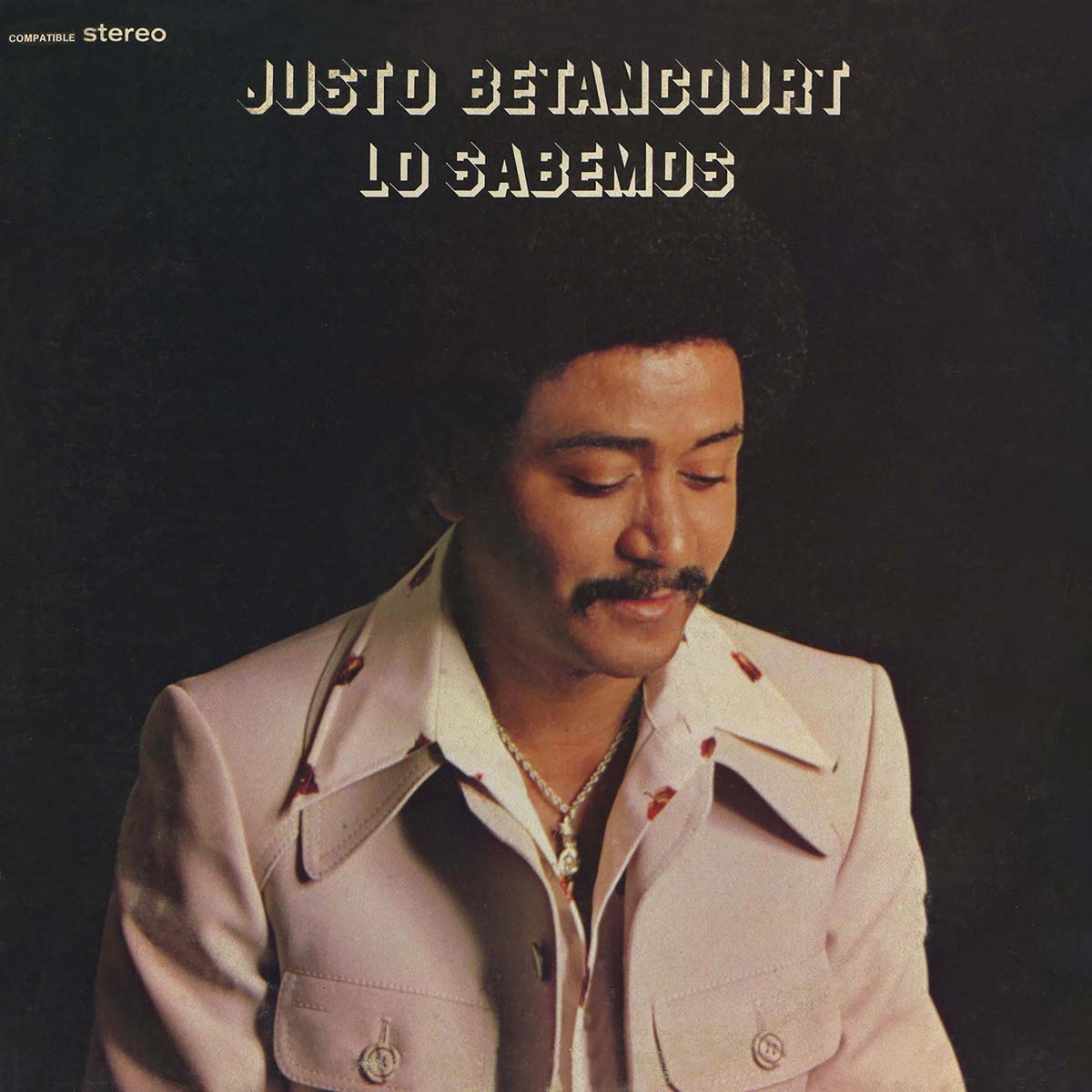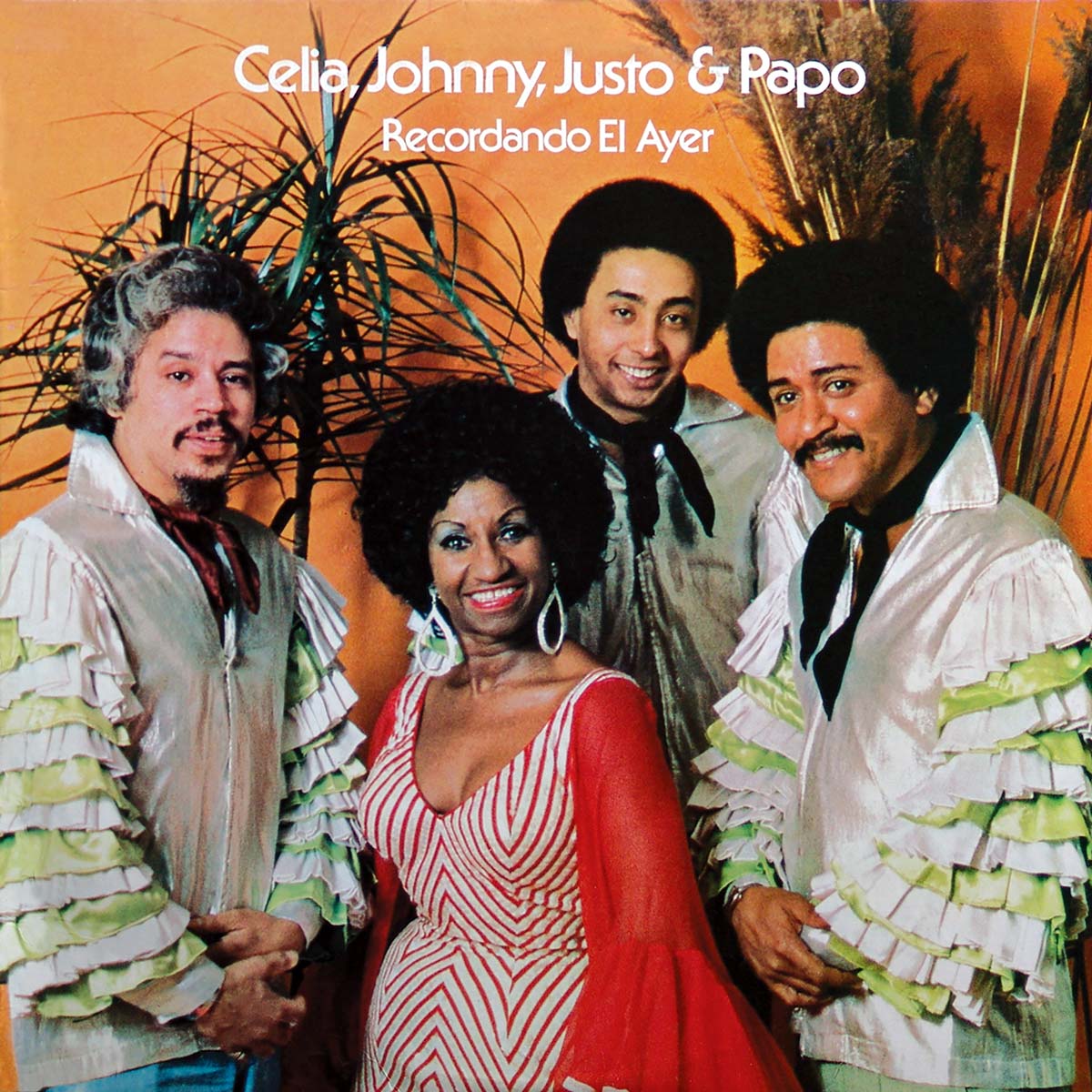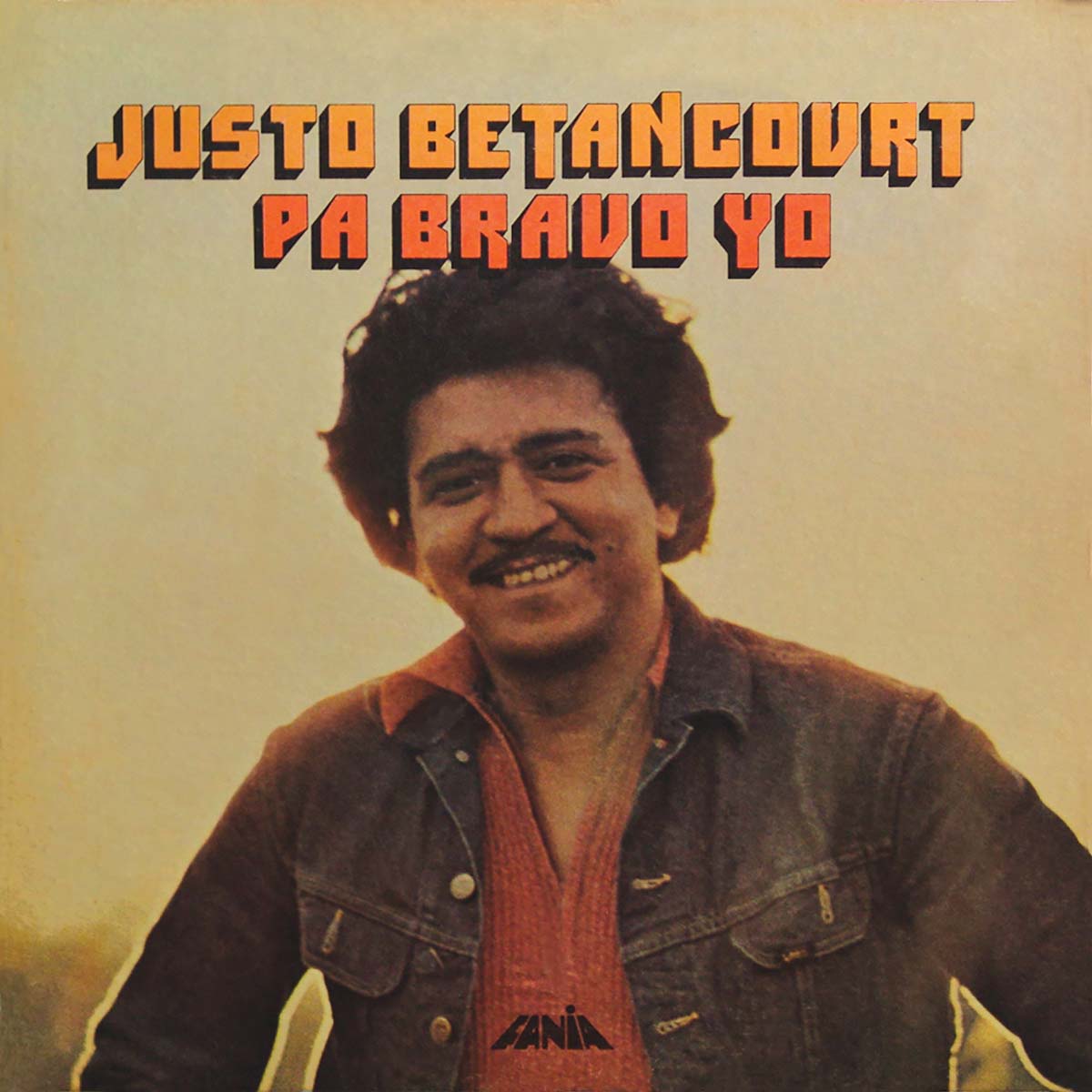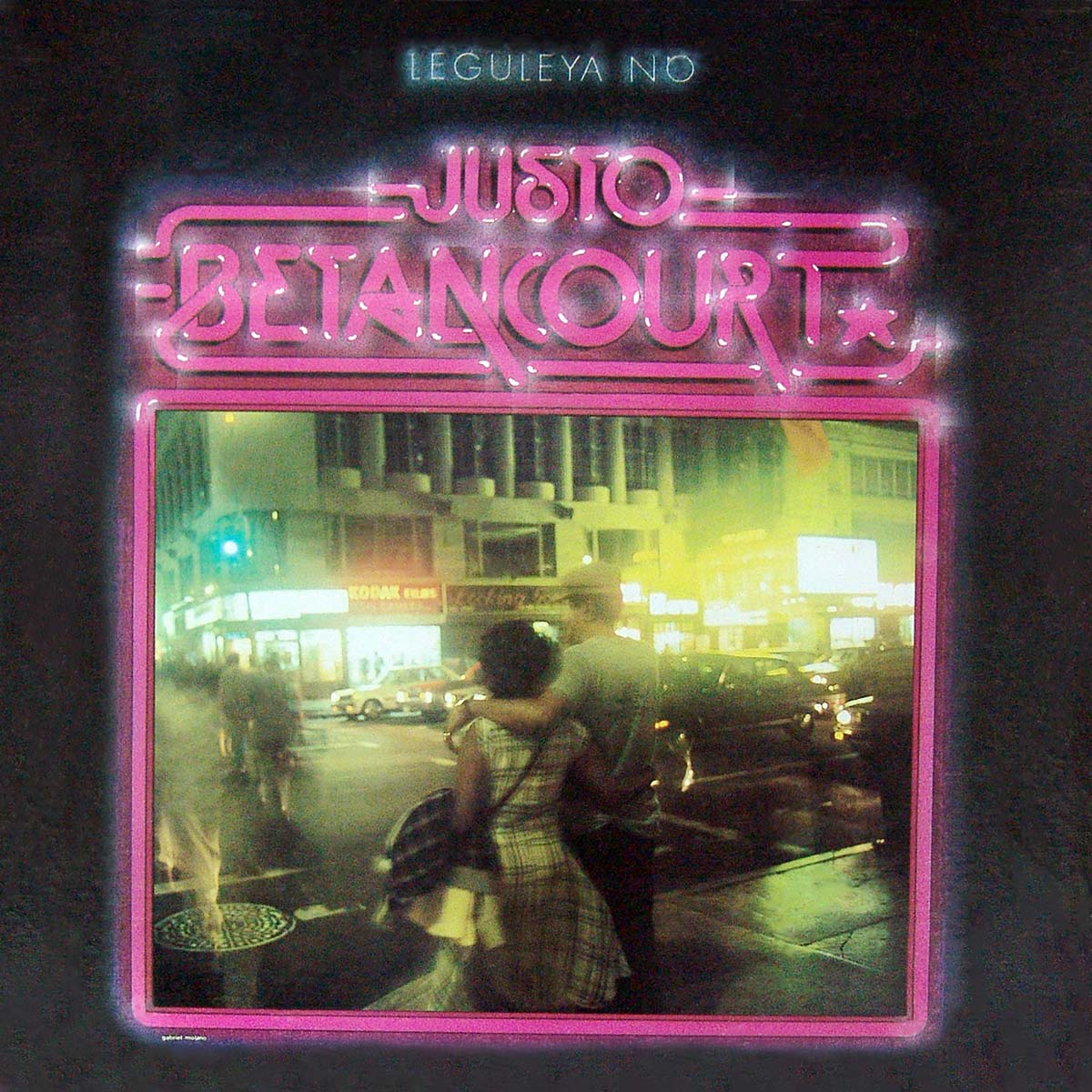
LO SABEMOS JUSTO BETANCOURT With the album Pa’ Bravo Yo, Matanzas-born singer Justo Betancourt established himself as one of the brightest stars in salsa, the sociocultural movement established during 1971 in New York through the appearance of the Fania All Stars and their “Latin thing” at the Cheetah nightclub. Justo was not present on that particular performance, but the success of albums such as Pa’ Bravo Yo, Sigo Bravo and Lo Sabemos resulted in his appearance with the Fania All Stars on the album Tribute to Tito Rodríguez, as well as the concerts at Yankee Stadium, the Madison Square Garden, the Coliseo Roberto Clemente in Puerto Rico, and a number of other venues.
Known as El Explosivo and El Bravo, Justo has a reputation for being difficult. However, we can attest that he is an honest man. Unfortunately, he has been one of the most underestimated artists in the Latin music industry. An excellent performer of boleros, rumbas and guarachas, Justo established his heardquarters in Puerto Rico following the release of Lo Sabemos, an LP that was produced by Larry Harlow with arrangements by Papo Lucca, Bobby Valentín and Javier Vázquez – his old bandmate from Sonora Matancera. Justo moved to Borinquen in 1975. His arrival coincided with the radio release of the guaguancó “De Mí Para Puerto Rico,” a Tite Curet Alonso composition that expressed the singer’s gratitude and love to all boricuas: “What can I say about this land/That would not be words of praise/The feelings that inspire me/To say thank you/For its maternal instinct/To give to another country’s son/What in his own land/He could never reach/That is why I love Puerto Rico/And I dedicate this tasty guaguancó…” The following year, Betancourt would support these words with the creation of Conjunto BorinCuba, the band that backed him on the albums Distinto y Diferente (1977) and ¡Presencia! (1978).
His orchestra rescued from anonymity Puerto Rican singer Tito Rojas, who recorded with BorinCuba the LPs Con Amor (1978) and Aquí (1979). Thanks to Justo’s support, Rojas became one of the biggest singers in the salsa field. Unfortunately, personal problems forced Justo to leave Puerto Rico in the late ’70s. He returned during the ’90s and lived in Barrio Obrero. By then, however, opportunities for singers of his generation were scant. The music industry was focused on the pretty boys of the salsa romántica movement. Justo had no option but to return to New York. And yet, you can’t talk about the history of salsa without mentioning Justo Betancourt and his valuable contribution to the genre. Lo Sabemos is one of the most exciting albums of his career. There’s only eight cuts here: six danceable numbers, joined by the boleros “Me Tienes Que Recordar” and “Mi Engaño Y Tú.” The sophisticated arrangements are the work of Bobby Valentín. Justo’s performance is melodious and intensely expressive. He also delivers a refreshing fusion of rock with cha cha cha on “Lo Sabemos.” There’s good salsa to be found on the guaguancó “De Mí Para Puerto Rico,” as well as two other compositions by Tite Curet Alonso: “Como Lo Canto Yo,” where he claims to be the best rumbero in the neighborhood, and “Pedregal,” the album’s biggest hit, which compares the pain of unrequited love with the torment of walking barefoot on stones.
The son montuno “Demuéstrame Que Tú Sabes” is another song that finds Justo showing why he is the maximum authority on Afro-Caribbean singing, delivering a virtual lesson on vocal improvisation. For those who sing/It is important to enunciate/To be harmonious, but not out of tune/To be conscious of rhythm and singing/To follow the clave, which is essential/There you have it, the key to professionalism. Betancourt lets go on “Cambia Palo Pa’ Rumba,” a percussive watercolor that emphasizes the interplay of quinto and congas, performed by Cachete Maldonado and Tony Jiménez, enriched by a stunning solo courtesy of Panamanian trumpet player Víctor Paz. Now remastered by the Emúsica label, Lo Sabemos is the cream of the crop.
Credits: Justo Betancourt – Director Angel “Cachete” Maldonado – Congas Johnny “Dandy” Rodríguez – Congas, Bass Drum Oreste Vilató – Bongo, Cowbell Nicky Marrero – Timbales, Whistle Tony Jiménez – Drums, Quinto Papo Lucca – Piano Bobby Valentín – Electric Bass Charlie Palmieri – Maracas Harry Viggiano – Tres, Electric Guitar Elliot Randall – Electric Guitar Victor “Vitín” Paz – Lead Trumpet Héctor “Bomberito” Zarzuela – Trumpet Juancito Torres – Flügelhorn Mario Rivera – Sax Lead Singer – Justo Betancourt Backup Vocals – Eladio “Yayo El Indio” Peguero, Roberto Torres, Marcelino Guerra Recording Director – Larry Harlow Producer – Larry Harlow for Passing Clouds Music, Inc. Recorded at – Good Vibrations Sound Studios, 1440 Broadway, NYC Recording Engineers – Jon Fausty, Larry Harlow Mixing Engineers – Jon Fausty, Larry Harlow Arrangements – Papo Lucca (“Como Lo Canto Yo,” “Demuéstrame Que Tú Sabes”), Bobby Valentín (“Lo Sabemos,” “Mi Engaño y Tú,” “Me Tienes Que Recordar”), Javier Vázquez (“De Mí Para Puerto Rico,” “Pedregal,” “Cambio Palo Pa’ Rumba”). Original Album Photography – Lee Marshall Original Album Design – Ron Levine Graphic Design – Louise Hilton Graphic Montage and Digital Process – Remastered at – Miami Tape Liner notes by Jaime Torres Torres Editor – Richie Viera





